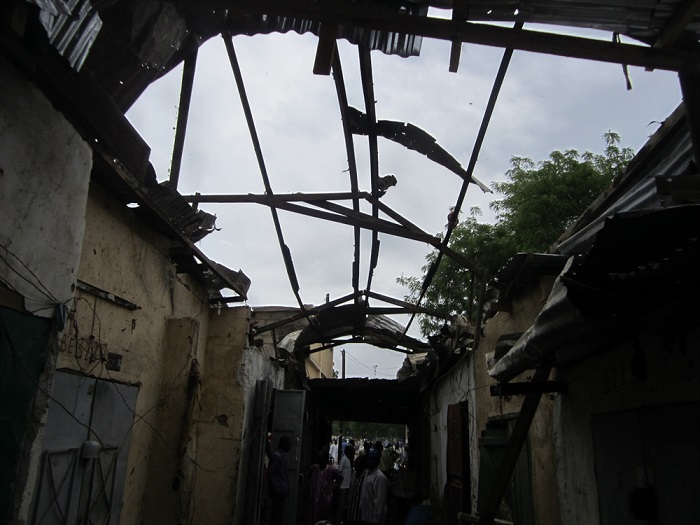
An upsurge in Boko Haram attacks in Nigeria and Cameroon have claimed the lives of at least 381 civilians in the five months since the start of April 2017, with casualties more than double the previous five months, says Amnesty International in a new report.
The radical Islamist group had overrun a large swathe of Nigeria before it was pushed out by the Nigerian Army, supported by troops from neighbouring countries. Nigerian president Muhammadu Buhari claimed in December 2015 that Boko Haram had been “technically defeated” and could no longer mount “conventional attacks” against security forces or population centres.
But according to Amnesty the recent spike in casualties has been driven by increased suicide attacks, often using women and girls who are forced to carry explosives into crowded areas.
“Boko Haram is once again committing war crimes on a huge scale, exemplified by the depravity of forcing young girls to carry explosives, with the sole intention of killing as many people as they possibly can,” said Alioune Tine, Amnesty International’s Director for West and Central Africa.
“This wave of shocking Boko Haram violence, propelled by a sharp rise in suicide bombings, highlights the urgent need for protection and assistance for millions of civilians in the Lake Chad region. Governments in Nigeria, Cameroon and beyond must take swift action to protect them from this campaign of terror.”
The Far North region of Cameroon and the Nigerian states of Borno and Adamawa have been the most affected by the recent violence.
In Nigeria, at least 223 civilians have been killed since April, though the real figure may be higher still as some attacks may have gone unreported. In Cameroon, Boko Haram has killed at least 158 civilians – four times more than in the preceding five months.
Last month, World Watch Monitor reported about Boko Haram’s increasing recourse to children as suicide bombers.
UNICEF says the group has sent out four times as many child suicide bombers this year in northeast Nigeria as in all of 2016. It says it is “extremely concerned about an appalling increase in the cruel and calculated use of children, especially girls, as ‘human bombs’ in northeast Nigeria. The use of children in this way is an atrocity”.